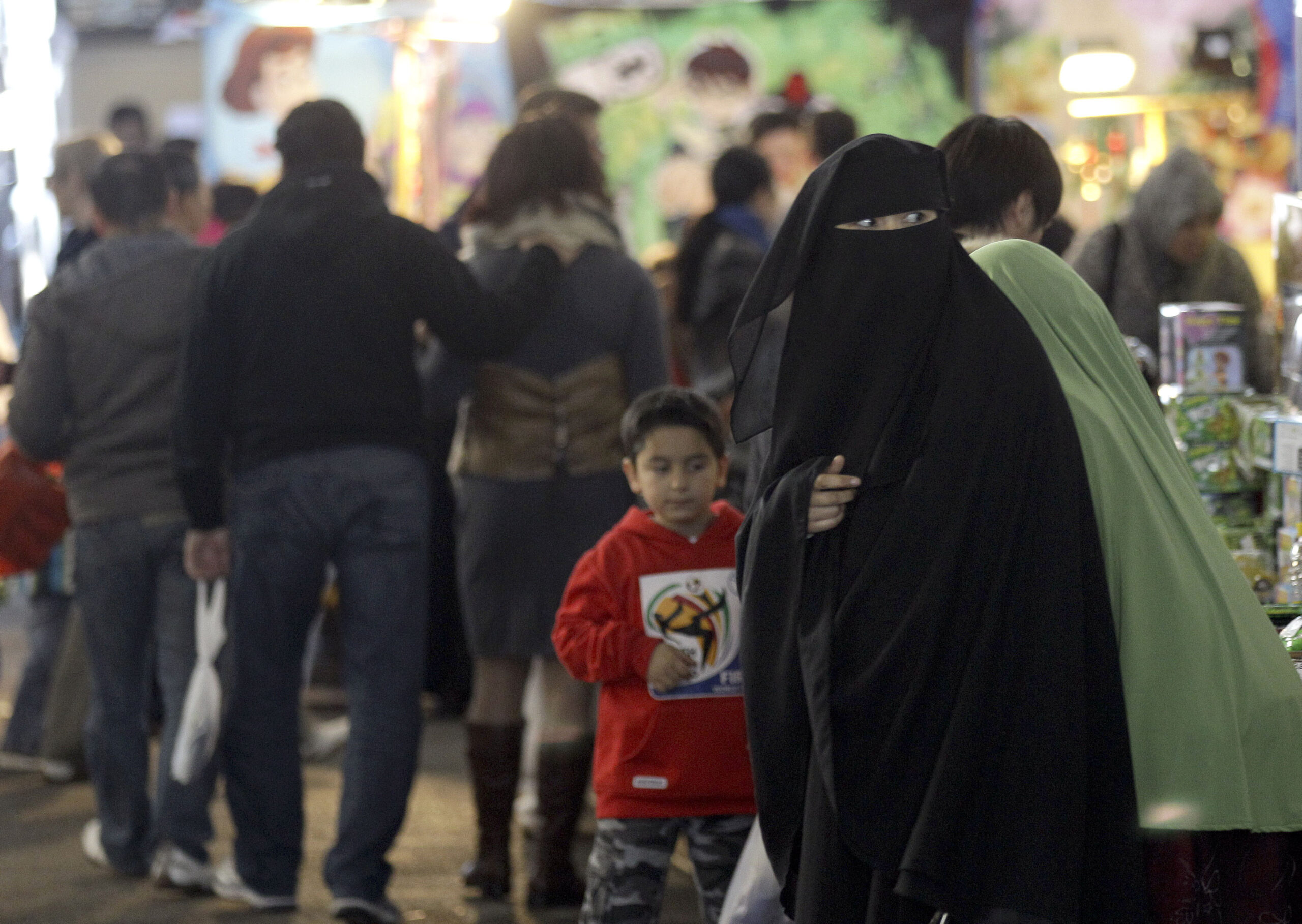Georgia Still in Fake News Headlines Over Dead ‘Burqa Ban’

A Muslim woman wearing a burqa shops at a local market in Sydney Sunday, July 10, 2011. Muslim women would have to remove veils and show their faces to police on request or risk a prison sentence under proposed new laws in Australia’s most populous state of New South Wales that have drawn criticism as culturally insensitive. (AP Photo/Rob Griffith)
Rob Griffith / Associated Press
Remember the “Burqa Ban?”
Last November a Georgia lawmaker introduced, and then quickly withdrew, a measure many believed targeted Muslim women wearing face veils. The bill may be long dead, buried under a firestorm of instant resistance from both the right and the left, but on certain parts of the Internet, Georgia is still making headlines.
One headline in particular reads: Georgia Becomes First State to Ban Muslim Culture in Historic Move to Restore Western Values.
It’s been shared at least 15,000 times on Facebook. This week, the fact-checking website Snopes debunked the story as it appeared on usanewspost.us.
“Usanewspost.us is one of well over a hundred pro-Trump websites that are actually run out of the country of Macedonia,” said Craig Silverman, who covers hoaxes and online misinformation for Buzzfeed News.
He said this post falls into a certain genre of fake, partisan websites.
“There’s a certain genre of these kinds of fake conservative websites where they really focus on the headline first,” Silverman said. “So they create the most outrageous headline they can, and then the body text, when you read it, it’s almost like it’s an afterthought.”
He added that this happens on left-leaning partisan sites as well.
The Gerogia article has no date and has only one or two lines about state Rep. Jason Spencer introducing the actual bill. It’s mostly a disconnected series of claims that Islam is both dangerous and not a legitimate religion.
Aisha Yaqoob, a policy director and lobbyist for the advocacy group Asian Americans Advancing Justice, fought Spencer’s bill.
“I think it definitely paints Georgia in a bad light,” she said. “I have to give some credit to the fact that there was so much outcry about the bill the first time around.”
As for the content of the post itself she said, “I don’t understand why they don’t think that my faith holds the standing as theirs might.”
Yaqoob said she’s actually seen this story shared by partisan sites on the left as if it’s new, something she said saps political energy that’s needed elsewhere.
Spencer, for his part, is also irritated about the article, though mostly because he said the bill’s being mischaracterized.
“This is a half truth, not really true. They imply that I’m banning Muslim culture, and that’s not really true,” he said.
Spencer’s bill would have added the pronoun “she” to Georgia’s anti-mask law. It also would have made it a misdemeanor to drive while wearing a mask or face veil. The measure the bill included to prohibit covering one’s face for official photo IDs is already in effect.
“It doesn’t concern me that they write what they want to write. We’ve got free speech in this country,” Spencer said. “The truth of the matter is that both sides have misunderstood the intent of the bill.”
Still, he believes religiously motivated violence by people wearing face veils is a threat.
“People will try to hide behind the religion in order to carry out an act. That is how jihad is waged. Now I’m not saying that’s what I’m actually targeting,” he said.
Spencer said he’s considering reintroducing similar legislation next session.
9(MDAxODM0MDY4MDEyMTY4NDA3MzI3YjkzMw004))








